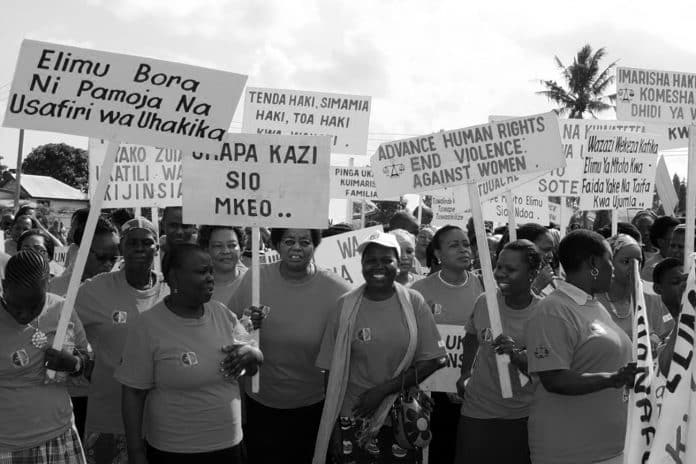Human Rights in Tanzania – History, Concerns, Treaties and More
Human rights in Tanzania is a complex topic, a country with a population of 44,928,923 as per the 2012 census. Freedom House labeled Tanzania as partly free in its 2013 report of Freedom in the world.
Concerns About Violation of Human Rights in Tanzania
The United Nations Human Rights Council did a Universal Periodic Review (UPR) of the situation of human rights in Tanzania at its 2013 Geneva meeting. During the UPR, The United Nations Country Team (UNCT) and a number of nations addressed the different challenges in Tanzania.
Gender Equality
According to the UNCT,
National assessments and reviews of human rights in Tanzania related to equality between women and men…have pinpointed a range of human rights issues in Tanzania that have persisted. These are inclusive of the increasing and persistent poverty burden on women; inequalities in access to resources and productive activities arrangements; inequalities in natural resources management and conserving the environment…. Closer attention ought to be paid to the rampant marginalization of women in various circles of life, inclusive of forced early marriages and education… Gender-based violence is rampant. As per a World Health Organization Survey done in 2005, 41% of women residing in Dar es Salaam have experienced sexual or physical violence from their partners.
Tanzania showed support for the recommendation of Denmark to, “Put effective legislation and an exhaustive strategy in place to eradicate practices that undermine women. Tanzania was also in support of the recommendation of Ghana, “Put a comprehensive strategy in place…to eliminate or modify stereotypes and cultural practices that discriminate women.
Indigenous Peoples
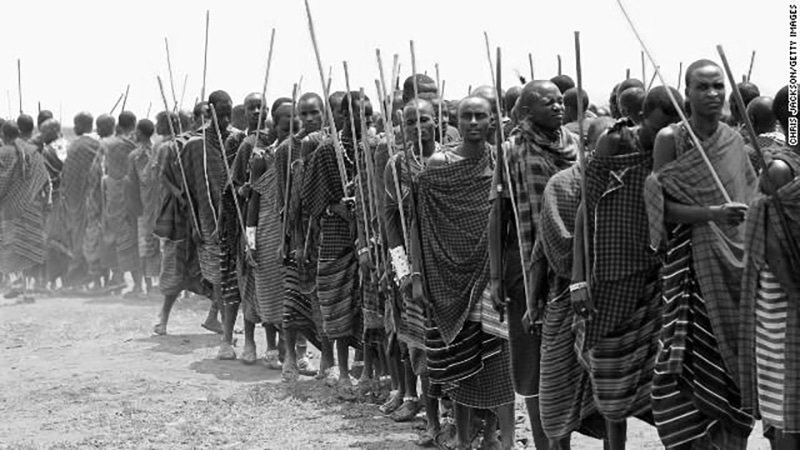
According to the UNCT,
Indigenous people have been denied a lot of their human rights in Tanzania especially in relation to access their ancestral lands, or this right has been limited for exploitation economically, in some game reserves…The Tanzanian government was encouraged to reevaluate its policy of ignoring indigenous peoples and to make efforts to ensure that they had the same rights as the majority population to practice their culture. The government of Tanzania should also put into consideration the creation of standard eviction procedures based on human rights, clearly stating that they should only be used as a last option to settle land-use disputes between private investors, pastoralists, and public interests.
Finland raised the issue of forced and illegal evictions of the native people during the UPR. It also inquired about Tanzania’s activities in implementing the suggestions of the Special Rapporteur regarding the indigenous people’s rights, as well as whether the government would adopt legal steps to adequately safeguard indigenous peoples’ rights. The rejection or restriction of native people’s rights to their ancestral lands, which resulted in countless forced eviction, arose concern from Denmark.
Human Rights are Violated in Tanzania Involving Same-Gender Relations
According to the UNCT,
Homosexuality is seen as a violation of cultural standards, and same-gender sexual interactions are illegal. There have been reports of mass arrests in conjunction with nonviolent demonstrations, non-attendance at HIV clinics, and forceful evictions of people based on their sexual alignment by religious and local communities. Furthermore, for fear of retaliation, the organizations’ representatives and other advocates of human rights in Tanzania may be unwilling to make public remarks in support of decriminalization and tolerance. The Tanzanian government is asked to adopt a proactive approach… by repealing any penal provisions that discriminate against people due to their sexualism.
During the UN Human Rights Council, Sweden stated that “sexual minorities’ criminalization led to the vulnerability and stigmatization of gay, lesbian, gay, transgender, and bisexual people (LGBTQ).” Slovenia voiced worry over the continued criminalization of consenting same-gender sexual activities.
Workplace Discrimination
As per the UNCT,
Despite the fact that the Convention on Equal Remuneration… and the Convention on Discrimination in Employment and Occupation… have both been endorsed and laws enacting their provisions have been passed, the Tanzanian government is yet to develop policies to resolve wage discrimination and disparities between public and private sector job values… Despite the fact that the HIV/AIDS (Prevention and Control) Act 2008 and the Employment and Labour Relations (Code of Good Practice) Rules 2007 was passed by the government, discrimination related to HIV/AIDS continues to exist in workplaces in both the private and public sectors.
Commercial Sex Worker Human Rights in Tanzania
As per the UNCT,
Another population at the brink of social isolation and severe law enforcement action is commercial sex workers. Commercial sex, which is illegal under the law, continues to propel harassment and human rights abuse in Tanzania. The authorities are urged to investigate the consequences of their arrests, and they are mostly women.
Albinism
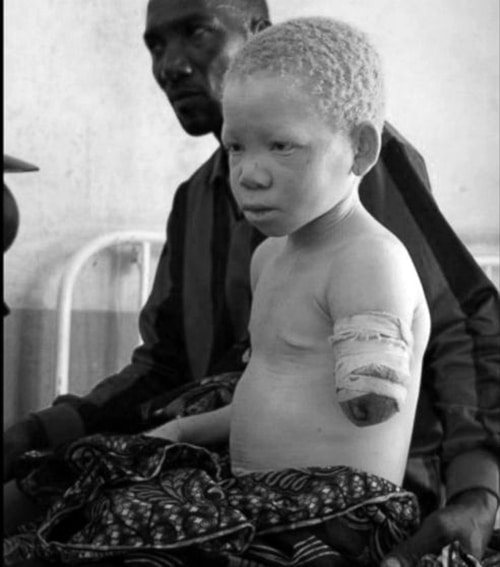
People who have albinism are still being killed and mutilated. A section of witch doctors believes that if they suffer screams while being amputated, witchcraft is more potent. In March 2013, Navi Pillay, the UN High Commissioner for Human Rights, stated that justice for such crimes is rare, with just five recorded convictions in over 72 albinism-related killings reported in Tanzania since 2000.
The UNCT asserted,
Between 2006 and 2010, over 58 people with albinism, the bulk of them being youngsters, were murdered. There were also nine attempted murder cases and accusations of cemetery desecration. … Attempts to bring the killers to justice have been initiated. Ending the murders also requires addressing the international and national trafficking of body parts. The Tanzanian government has set up refuge centers for albino children as a safety measurement. However, this strategy isolates children from society and separates them from their families. As a result, the government ought to look at other options for safeguarding persons with albinism, such as choices that encourage social tolerance and inclusion.
Maternal Mortality
Tanzania has a high maternal mortality rate. Most of the deaths are linked to obstetric reasons, whether direct or indirect.
The UNCT supposed,
Over the last two decades, maternal health trends have slowly improved… A key recommendation to the Tanzanian government is the expansion of availability and access to elementary emergency obstetric care, supplies, and qualified health workers (who currently attend less than half of all live births). Family planning access might cut maternal mortality by three and infant mortality by up to 20%. … A review of the present restrictions on abortion services, which are unlawful under the Penal Code, is also required. According to reports, many girls and women try to abort in private and succumb due to unhygienic conditions and lack of professional intervention.
Under-Five Mortality
According to the UNCT,
Since the mid-2000, a substantial rise in child survival has been recorded after over a decade of stasis during the 1980s and 1990s. This achievement equates to an annual rescue of approximately 100,000 children… Despite this, the number of children under the age of five who die each year is still estimated to be over 155,000 — over 400 fatalities daily in Tanzania.
Human Rights in Tanzania Involving Forced Labor
According to the UNCT,
The Local Government Act of 1982 empowers the Tanzanian government to oblige groups and people to labor for the benefit of the economy. Several laws also allow for imposed forced or obligatory labor as a penalty for a variety of crimes, including political speech and refusal to take part in a socially valuable activity. These rules conflict with applicable International Labour Organization treaties and should be modified as soon as possible to avoid further human rights violation in Tanzania.
Trafficking of Persons
As per the UNCT,
Tanzania is a destination, source and transit country for trafficked women, children, and men, particularly in the form of forced prostitution and labor. Internal trafficking is more common than international trafficking, impacting mostly minors for abuse in domestic labor, prostitution, and petty commerce, primarily from rural to urban regions. Trafficking is frequently facilitated by friends and family members who promise aid with schooling or lucrative jobs in metropolitan regions. The greatest human trafficking concern in the country continues to be the exploitation of young women for involuntary domestic work. The government entities entrusted with protection and prevention are unable to execute 2008 Anti-Trafficking in Persons Act as they lack preset regulations to follow due to the absence of an Anti-Trafficking Committee. As a result, the majority of government officials are unaware of the Act’s provisions and human rights in Tanzania surrounding to trafficking of persons, and no resources have been set aside to combat crime and help victims… Human trafficking is sometimes misunderstood by law enforcement officers as a moral matter that is resolvable by monetary recompense. Three instances were successfully prosecuted between the law’s introduction and the end of January 2011.
Prisons, Incarceration, and Access to Justice
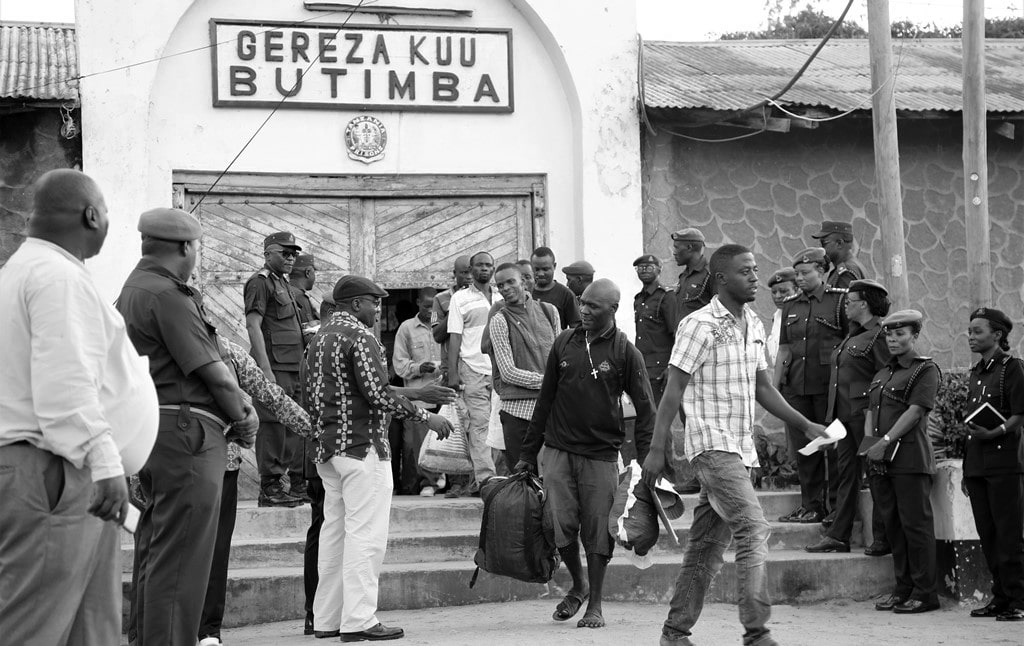
According to the UNCT,
Courts, magistrates, and judges who rule over cases are in low supply, significantly limiting access to feasible tribunals. In the district and primary courts, [33.6 % of]… cases have been waiting for two years or longer. Similarly, due to fewer court sittings, the pending cases in the High Court (for severe felonies, murder, and appeals) are increasing. Furthermore, protracted police investigations, the court’s dismissal of cases for weak technical reasons, and the failure of witnesses to turn up all add to the delay. A scarcity of attorneys who are qualified to represent clients in court also exists, with the vast majority of them being inexperienced. Whilst the law provides for legal help in criminal proceedings, people accused of treason or murder are only given free legal representation in practice. Detention centers are struggling to meet the basic demands of an increasing number of detainees, the majority of who are on remand. Convicted and undecided people are routinely thrown together in harsh conditions. Some institutions, such as the Ruanda Central Prison, which has 838 nominees with only a capacity of 400 inmates, are housing more than double their capacity.
The US State Department stated in its 2013 human rights report,
Prison conditions were still severe and life-threatening despite modest improvements. Inadequate food, poor sanitation, overcrowding, and poor medical treatment were all common occurrences. There were claims that officials treated people inhumanely. In detention institutions, serious risks to life have persisted. The jails had 34,404 inmates on October 17, [2013], which was 16 percent more than the overall capacity of 29,552. There were 17,180 convicts and about 17,224 pretrial detainees among the inmates. Convicted inmates and Pretrial detainees were housed in the same facility. Owing to a shortage of custody facilities, authorities detained minors with adults in some jails. As per government sources, HIV/AIDS-related fatalities have occurred in jails. Malaria, HIV/AIDS, TB, and other illnesses associated with inadequate sanitation were the most prevalent health concerns among inmates. Prison dispensaries provided only limited therapy, and in most cases, convicts’ families and friends had to bring drugs or cash to buy them. Prison staff’s capacity to transfer inmates to hospitals and health clinics was also hampered by a lack of vehicles. Lack of access to electricity, water shortages, and insufficient medical supplies have all been reported by prison employees…Inadequate bookkeeping in prisons led to reporting inconsistencies. On the mainland, courts and magistrates have the authority to give parole or sentence alternative punishments like community service…, although these alternatives are rarely exercised. The statute allows for early release in exchange for good conduct, but it comes with onerous evidentiary standards. Authorities on the mainland frequently relocated inmates to different jails without informing their relatives…Probation officials are still insufficient. On the mainland, inmates were allowed to file grievances with court officials, but the written letters were allegedly edited.
Owing to a shortage of magistrates to rule cases, an insufficient judicial budget, and the considerable period necessary to conduct police investigations, detainees accused of criminal issues typically waited three to four years for trial.
Juvenile Justice
According to the UNCT,
Even in areas where juvenile detention centers are available, children are regularly detained in adult detention institutions prior to and after their trials. The jails are understaffed and underequipped to provide specialized services, and while under-18s and under-21s are typically detained separately at night, they are mixed with adults during the daytime. Only five retention centers and two post-detention homes exist for under-18s (with two more on the way). There exists no distinct criminal justice system for those under the age of 18, and juvenile matters are adjudicated in ordinary courts, with the exception of one in Dar Es Salaam. Without the financial resources to hire a lawyer, minors under the age of 18 are frequently left without representation. No diversionary system has been in place, and no rehabilitation programs are legally mandated or executed in practice. The use of non-custodial punishment is rare. Boys may be subjected to slapping or stroking. Fines, expenses or compensation, as well as supervised probation are some of the other penalties. Zanzibar also lacks a distinct system for youngsters, and because there are no dedicated detention institutions, minors under the age of 18 are held in the same jail as adults.
In its 2013 human rights report, the US State Department said,
In 2011, the [Commission for Human Rights and Good Governance]… toured a sample of jails and detention amenities and discovered 441 juveniles imprisoned in adult prisons. Sixty-four of them were found guilty, while the other 377 were held in custody awaiting trial. In the Mbeya area, there was one juvenile detention center and 5 remand houses. Officials blamed the lack of cooperation between the judges, police, and prison administration for the lack of suitable custody facilities.
Torture, Use of Excessive Force, Corruption, and Arbitrary Arrests
The US voiced concern during the UPR over claims of subjective arrests, disproportionate use of excessive force by the military and police, and law enforcers engaging in corruption. Denmark was alarmed about claims of inappropriate use of force by law enforcement officials, including torture.
Tanzania backed US recommendations to “put in place a national plan to fight corruption, including improved laws and dedication of more resources to anti-corruption organizations, a review of compensation of law enforcement, and a country-wide educative campaign…” as well as provision of training on human rights to law enforcers.
In its 2013 human rights report, the US State Department said,
Several claims surfaced that government agents (particularly police and security forces) perpetrated illegal killings. Several incidents of police personnel mistreating, assaulting, and killing people have been reported by NGOs as well as local news outlets. … According to the Legal and Human Rights Center (LHRC), domestic violence, police brutality, and extrajudicial executions all increased in 2013….. As per the LHRC, 22 people had been murdered by police and various security forces by July (in comparison with 31 reported in 2012). Several MPs and NGOs voiced concerns in October about suspected violations of human rights in Tanzania connected to the government’s contentious anti-poaching program. Some MPs said that government authorities used disproportionate force while interrogating people about poaching, confiscated and slaughtered animals found on the protected property, and set fire to the homes of pastoralists accused of unlawful grazing. In reaction to continuing parliamentary concern, President Jakaya Kikwete fired four cabinet officials on December 20.
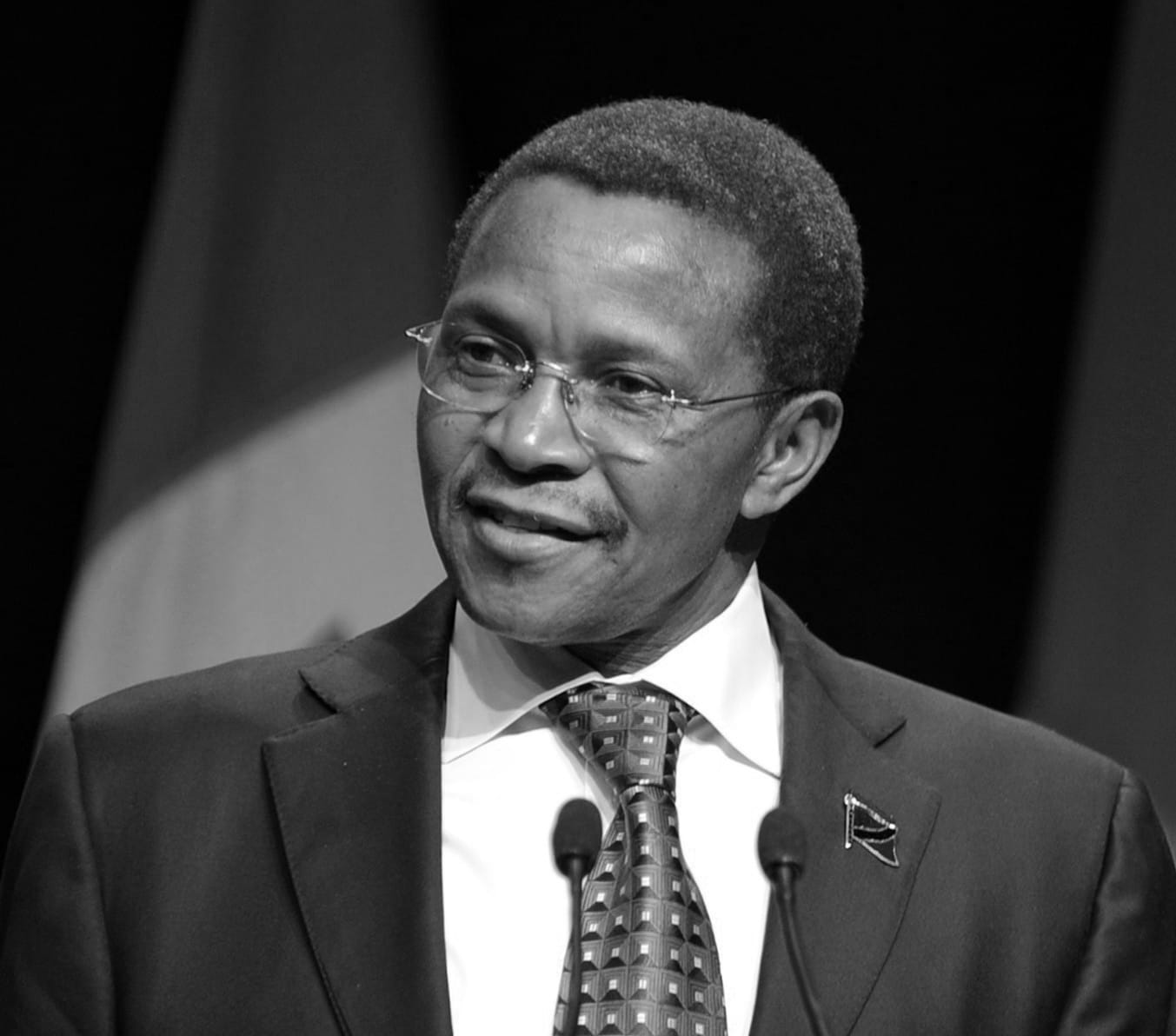
Although the law and constitution forbid torture as well as other inhuman, cruel, or degrading punishment or treatment, reports emerged that prison guards, soldiers, and police officers who threatened, abused mistreated suspects, prisoners and civilians faced little repercussions. Batterings were the most prevalent form of maltreatment. Human Rights Watch and the Wake-Up and Step Forward Coalition issued a report on June 19 detailing many specific claims of abuse and torture of gay, lesbian, transgender, and bisexual people in police detention. The law permits the use of caning. Caning was employed as a punishment by local government authorities and courts on occasion for both adult and juvenile criminals. Schools frequently utilized caning as well as other forms of physical punishment.
The Police Force is in charge of preserving peace and order on the mainland as well as in Zanzibar. Excessive force, impunity and police corruption were all reported in… [2013]. Low pay led to the perception of corruption in particular units, as people and the media frequently documented. Newspaper stories, civil complaints, and police corruption report from the Prevention and Combating of Corruption Bureau… as well as the Ministry of Home Affairs…also persisted. Sungusungu, or citizen patrols, are local anti-crime organizations that operate across the mainland. They have the ability to conduct arrests under the People’s Militia Act of 1973. Members of the Sungusungu were not allowed to carry machetes or weapons, but they were allowed to carry clubs or sticks. They… functioned independently of the police. Sungusungu militants were accountable for the deaths of four individuals in Shinyanga, Iringa and Mbeya districts this year, according to the LHRC.
On the mainland, it is required by the law that a person detained for a crime, other than a detainee of national security, be charged within 24 hours after their arrest…, but the police have failed to follow this provision regularly. There have been instances of police utilizing a continual pattern of releasing then re-arresting suspects in order to keep them in jail while police… gathered the necessary information to charge them. Despite the fact that the law grants accused individuals the opportunity to contact an attorney or speak with their families, they have been denied this privilege on several occasions. Lack of attorneys in remote regions, poor communication networks and infrastructure, as well as the accused’s poverty and illiteracy all hampered prompt access to counsel. … Some destitute defendants received legal assistance from the government, as did all suspects accused of treason or murder. Bribes were occasionally used in primary and district courts to decide whether to grant bail.
Justice for Gender-Based Violence Survivors
As per the UNCT,
Sexual violence survivors and abuse fight for social and justice assistance. The great majority of cops, prosecutors, and judges are unprepared to deal with survivors’ demands. Many police officers advocate for settlements outside court. Families are typically discouraged from filing lawsuits due to stigma and societal pressure, with the communities preferring the handling of such matters outside of the legal system. As a result, offenders frequently enjoy impunity. As of 2008, a framework has been developing to better survivors’ reception and answers to their requirements. … However, ongoing training and skill development, as well as public awareness campaigns about human rights in Tanzania, are required… For example, just 320 policemen out of a total force of 35,000 have undergone training.
Freedom of Opinion, Association, and Expression
As per the UNCT,
More initiatives to enhance the availability of independent data surrounding human rights in Tanzania are ongoing as a result of MKUKUTA II pledges. There is a projection that each district will have a minimum of one community media, up from the present twelve. To keep that promise, it will be required to streamline the time-consuming and bureaucratic formalities for approving such radio stations, which take up to 3 years. The Tanzanian government should also be worried about claims from independent election monitors from the 2010 general election, which claim that certain radio stations were targeted for intimidation in order to prevent them from broadcasting voter education programs. Fast-tracking freedom of information legislation, ethics code for ads, and the implementation of mass broadcasting in Zanzibar are all significant recommendations for the government.
Treatment of School Pupils
According to the UNCT,
Only 0.4 % of disabled children were enrolled in 2008, and the numbers declining. Rather than receiving an inclusive education, these students are usually sent to schools for people with special needs. While an inclusive education strategy has been adopted by the government, immediate steps are necessary for its implementation and, as a result, to raise the inclusion of vulnerable children and orphans, most of who are probably among the 5% of primary school children who are not in school. Pregnant females can be expelled from school under a law passed in 2002. Existing special and protection programs for females are insufficient, resulting in several girls dropping out of the country’s obligatory education program. Corporal punishment is not legal in any setting, including schools, yet it is often used. According to preliminary findings from upcoming research on child violence, there is a lot of physical abuse in schools. Before the age of 18, more than half of all kids have been exposed to physical abuse by their instructors, such as being kicked, punched, lashed, slapped, or threatened with a weapon.
During the UPR, Finland expressed concern over Tanzania’s limits on disabled people’s education and inquired about the government’s plans to fully realize the disability act and the inclusive education policy.
Human Rights in Tanzania Pertaining Persons Living with HIV/AIDS
According to the UNCT,
Due to gender norms that identify women as “vectors” of HIV transmission, stereotyping of HIV/AIDS victims still fuels discrimination and stigma, and discrimination, particularly towards women. The prosecution of “intentional” HIV/AIDS transmission, which carries a sentence of up to 10 years, adds to the stigmatization of HIV or AIDS patients. The additional benefit of this technique is questioned since it is challenging to determine who has deliberately infected another individual. Furthermore, transfer from mother to kid creates an extra worry for women.
Zanzibar
The situation of human rights in Zanzibar has always been more difficult than on the mainland. The unified republic’s initial constitution granted mainland authorities practically no power to interfere in areas of justice and law. As a result, mainland authorities were helpless to prevent a wave of subjective arrests and detentions in Zanzibar. The Zanzibar branch of the Revolutionary Party (formerly the Afro-Shirazi Party) has always been more authoritarian compared to its mainland counterpart, a state that has persisted even after the legalization of opposition parties in 1992.
Refugees from Burundi
Following a February 2012 conference between Burundi, Tanzania, and the United Nations High Commissioner for Refugees (UNHCR), the Mtabila camp, which houses around 38,000 Burundian refugees, was decided to close on December 31, 2012. After granting citizenship to 162,000 Burundian refugees in 2010, Tanzania has declined to provide citizenship to these refugees.
After a comprehensive questionnaire conducted by Tanzanian officials and the UNHCR and in December 2011, it was established that the refugees in Mtabila did not need international protection, and the ones who are unwilling to return to Burundi without justifiable grounds, will be subjected to relevant laws of Tanzania, including those for immigration management and control. Only 2,715 refugees were determined to be eligible for refugee status in August 2012, based on UNHCR screening interviews. The UNHCR stated in November 2012 that about 1,000 individuals were being willingly helped to return to Burundi daily.
At least 18 Burundian refugees and asylum seekers were tortured and abused by Tanzanian authorities and intelligence agencies between October 2019 and August 2020. More than 1.5 lakh Burundian refugees dwell in Tanzanian camps as a result of President Pierre Nkurunziza’s controversial decision to seek a third term in 2015.
Historical Freedom House Ratings
Tanzania’s ratings in the Freedom in the World reports, issued yearly by Freedom House, have been shown in the graph from 1972. A grade of 1 indicates “free,” while a rating of 7 indicates “not free.”
The report gives a sneak peak of how human rights are violated in Tanzania.
International Treaties
Tanzanian positions on International treaties are clearly stated. The government has also been very cooperative internationally to show and explain how human rights are protected in Tanzania.
Other Important Things Pertaining Human Rights in Tanzania
- Commission for Human Rights and Good Governance in Tanzania – https://www.chragg.go.tz/
- Human Rights Organizations in Tanzania – http://hrlibrary.umn.edu/africa/tanzania.htm
For more articles related to Laws of Tanzania (Acts), click here!

























